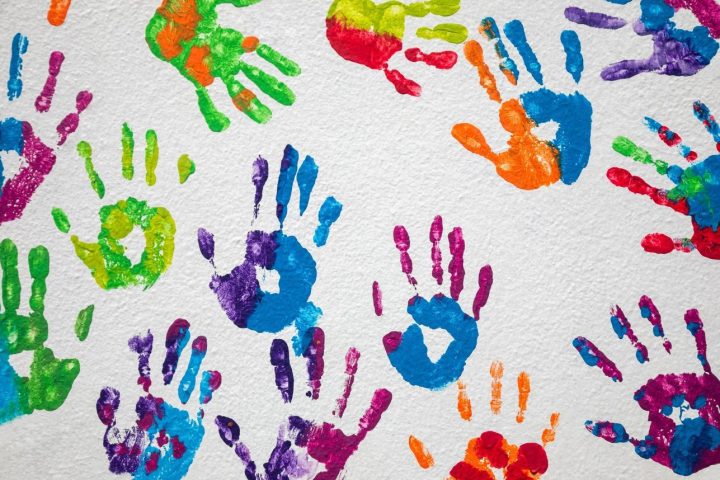Recovery From COVID: Perspectives from Young Adults with Foster Care Experience
As the COVID pandemic enters its third year of impact, donors and foundation funders may face uncertainty about how to ensure a more just recovery from COVID-19. The 2022 High Impact Giving Guide from the Center for High Impact Philanthropy (CHIP) is designed to do just that – help grantmakers turn good intentions into high social impact. Following the methodology of prior work, the expertise of individuals with lived experience dealing with a particular circumstance is recognized as critical to informing a philanthropic strategy. Building on the concept of centering the insights, data and experiences of individuals who will become the beneficiaries of future programming, CHIP and the Field Center have partnered to learn about the mental health needs of older youth with foster care experience during the pandemic.
The resulting qualitative study involved 26 semi-structured interviews of young adults currently in or aged out of foster care. Four domains emerged as critical to their overall well-being: Interpersonal Relationships, Impact of the Pandemic, Managing Mental Health, and Systemic Interactions.
Although the impacts of the pandemic are felt across issues and in every population around the globe, the CHIP team examined key areas in which existing disparities, particularly across racial, economic, and gender lines, grew. The voices and experiences of the young adults with foster care experience that the Field Center team spoke with elevate and reinforce the importance of four key strategies that are critical to a just recovery for youth:
- Support mental health and well-being, given the increase in mental health challenges due to COVID-19. Early Field Center research on COVID-19 uncovered high rates of mental health struggles among older youth in and aged out of care, with more than half of participants in a national survey study reporting symptoms of depression and anxiety. The recent deeper dive into this area illuminated participant-driven strategies for managing mental health care, including engaging in healthy coping skills (e.g., reading, social media, exercise, and music) and promoting connections to resilience factors and external supports (e.g., work, therapy, friends/family). Access to high-quality mental health care must be available, in addition to ensuring that vulnerable young adults have autonomy in choosing activities to address their mental health.
“When I’m having a bad day or mental health problems, I continuously go back to my favorite shows or my favorite book.” — 19-year-old in foster care
“Eventually, they found me a therapist. I had virtual therapy sessions and I started getting back to my normal self and feeling a little more hopeful.” — 19-year-old aged out of foster care
- Help youth and young adults make needed connections to survive and thrive. Young adults aging out of foster care need connections to other individuals, caring adults, and systems that can assist them successfully transition to adulthood. Investment in programs that support mental health and life skill development is critical for this marginalized population. Although the vast majority of young people in our study identified peers or friends as a key source of support, an involved non-parental adult, mentor, or therapist were also frequently cited as making a difference.
“I have this support group, like advocates. I believe that without their help I would’ve been struggling more.” — 22-year-old aged out of foster care
“Two of the associate directors [on campus] were really just rock-steady adults, and particularly one of them has just been the most steady, constant presence in my life…she alone has made such a difference.” — 23-year-old aged out of foster care
- Meet basic needs for the many who are facing extreme hardship due to the pandemic. Young adults aging out of foster care experience myriad challenges in meeting their basic needs. The COVID-19 pandemic exacerbated challenges in housing, employment, and financial stability for this population, which in turn took a toll on their mental health. Direct access to cash assistance, public benefits, digital access, and even shelter services were noted by study participants as desired resources.
“I lost my job so that meant that I had to be home 24/7 and with that, I couldn’t pay my rent or some of my bills so that made me quite depressed.” — 22-year-old aged out of foster care
“I would say to provide more shelters for youth. It’s quite frustrating that there’s not a lot of foster homes for teens and young adults so they deal with homelessness and that’s a lot of stress. You shouldn’t have to be stressing your living situation at that age. So provide more shelter.” — 20-year-old aged out of foster care
- Create paths to sustainable livelihoods so that young people have the resources to care for themselves. While people and households around the world suffered job losses and instability in the face of the COVID-induced economic downturn, young adults in foster care particularly felt the negative impacts of workforce exclusion and despair in maintaining their livelihoods. Research participants noted poor preparation for adulthood and loss of employment as key contributors to their difficulty during the pandemic. Maintaining employment, continuing career training or higher education, and securing virtual work were critical supports to youth who were lucky enough to have this.
“With me being in foster care, I didn’t have a set parent, my parent was the state. I felt like it would’ve been a lot better had the state taught me a lot more about financial decisions, savings, and different things like that so maybe I wouldn’t have been put in the position that I was in when COVID did happen.” — 22-year-old aged out of foster care
“I now have a job and a reason to get out of bed every day.” — 19-year-old in foster care
The Field Center team recognizes the strength and bravery of the 26 young people who took the time to share their insights with us. We hope that their experiences help generate services and interventions for others who may follow in their footsteps. We also hope that the opportunity to contribute to this project provided them with some solace about being heard and knowing that innovators are listening.
“I just appreciate the opportunity to be able to share my story. This is the first time that I actually got to speak on how I felt as a student, as a person. You know, going through a mental health crisis but still having to work to make ends meet.” 23-year-old aged out of foster care
Editors’ Note: This blog first appeared on the Center for High Impact Philanthropy’s website in April 2022. View the post in its original format here.


